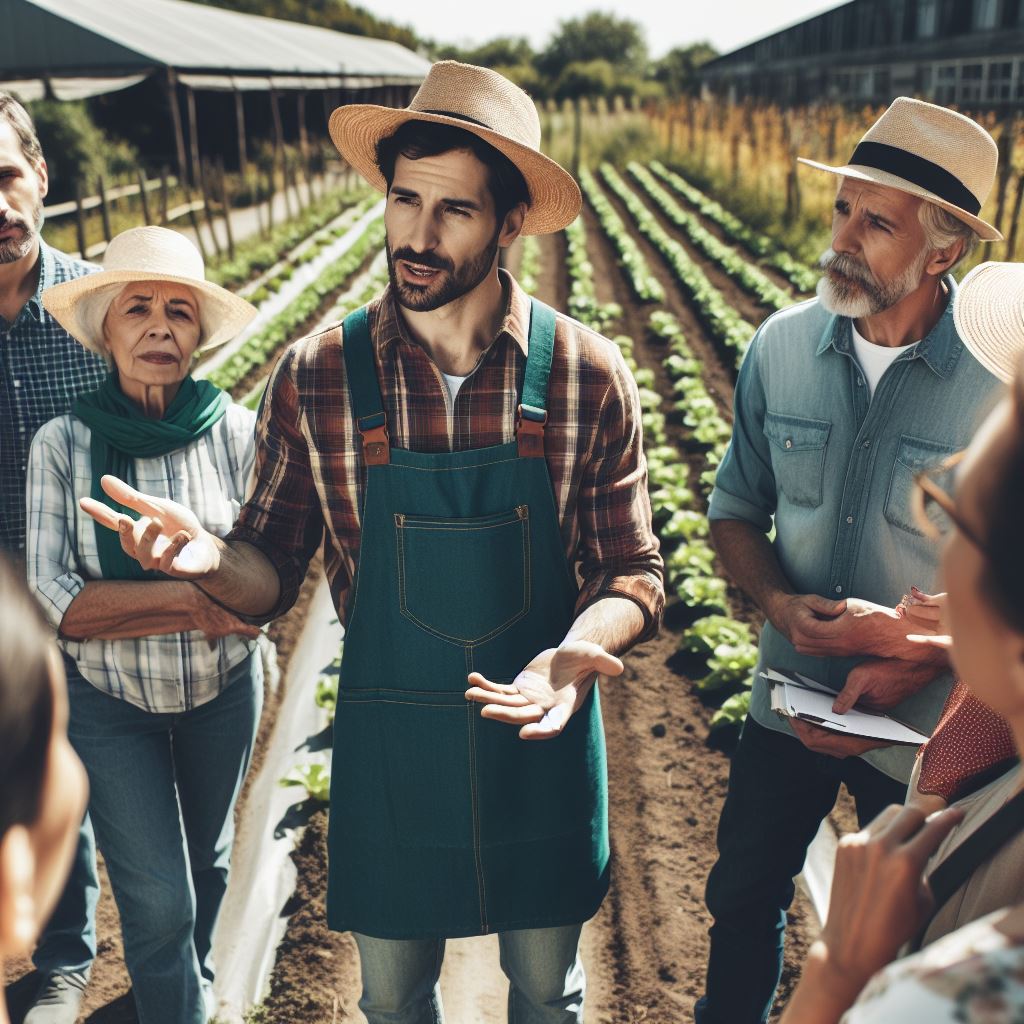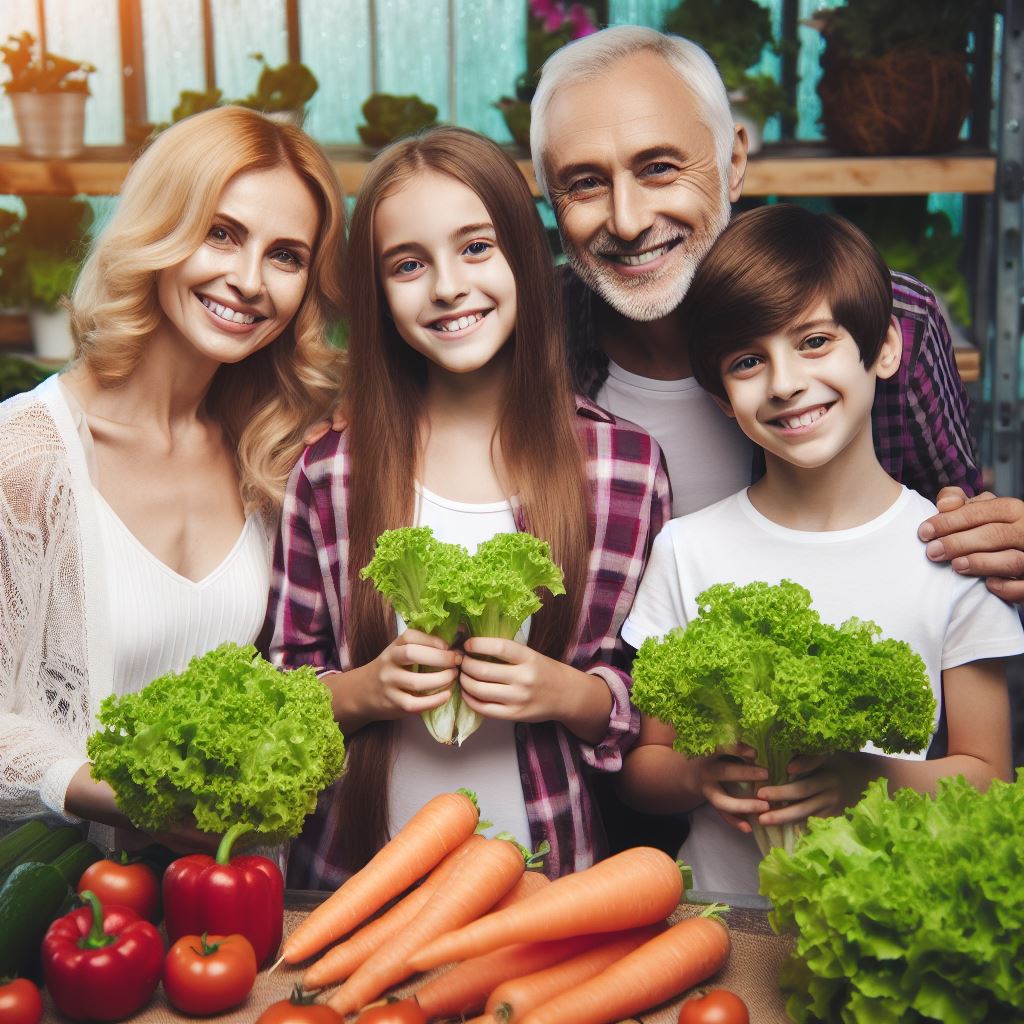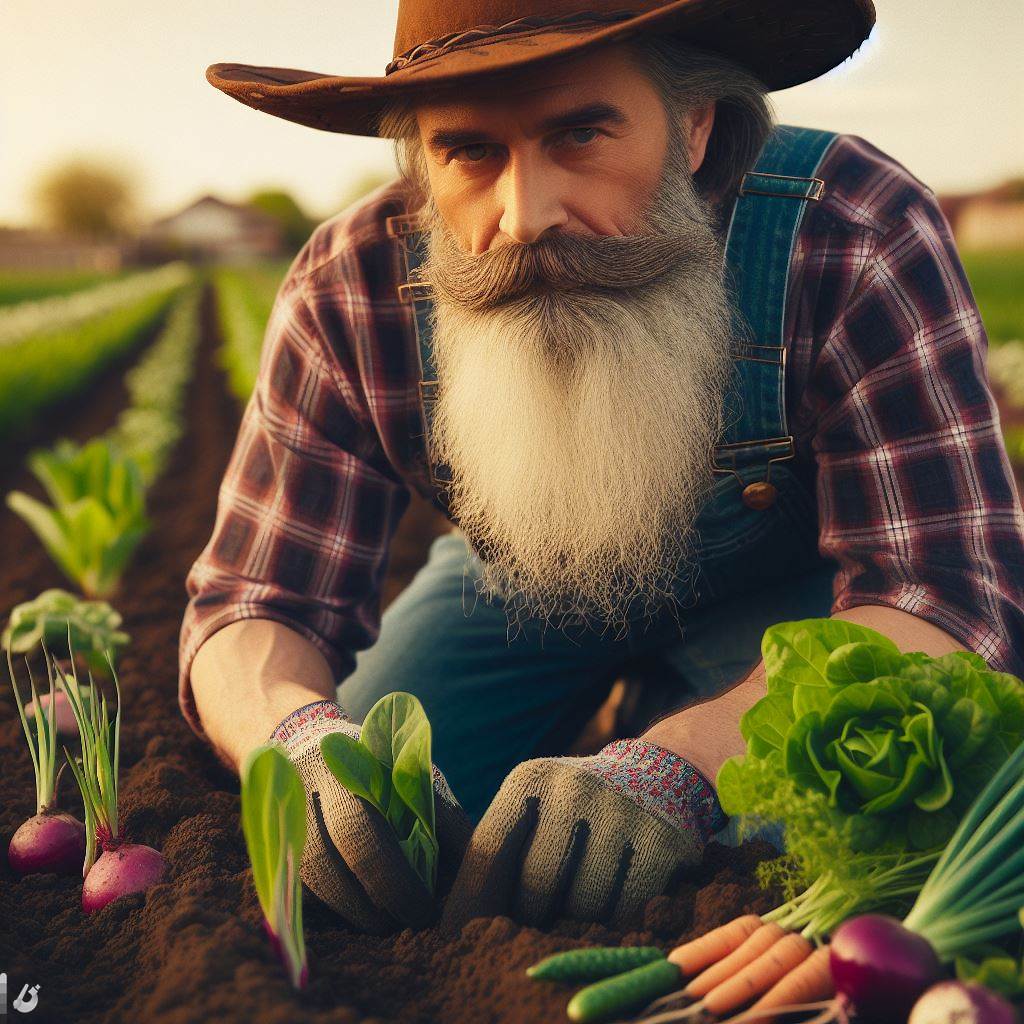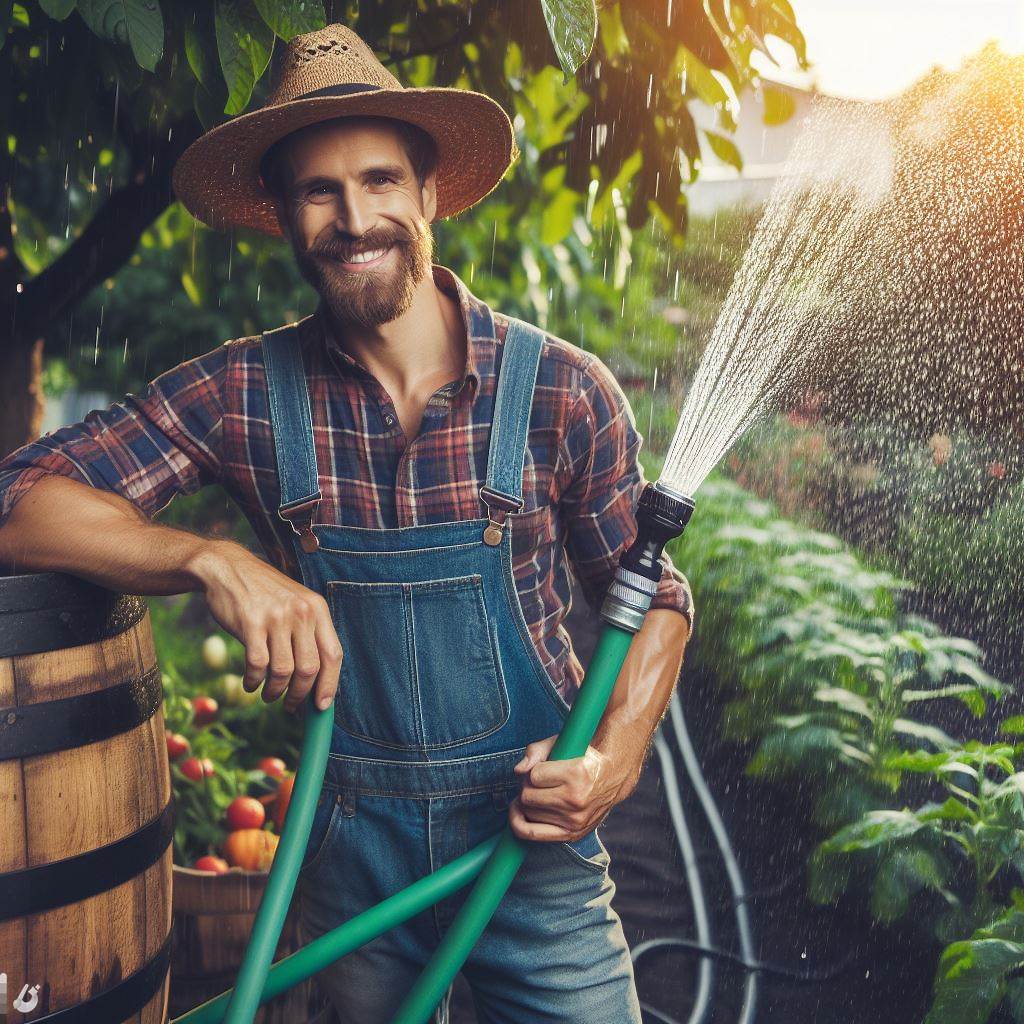Introduction
Biodynamic farming is a holistic approach to agriculture that views the farm as a self-sustaining system.
It combines organic farming methods with spiritual and mystical beliefs.
this kind of farming has gained popularity in recent years due to its focus on environmental sustainability and regenerative practices.
It emphasizes the use of compost, biodiversity, cover cropping, and crop rotation to maintain soil health and fertility.
This type of farming also considers cosmic forces and rhythms, such as lunar and planetary movement, in planting and harvesting crops.
It promotes the use of herbal and mineral preparations to enhance soil and plant vitality.
Biodynamic farming is seen as a way to restore the connection between farmers, consumers, and the land.
It aims to create a harmonious relationship between humans, animals, plants, and the natural environment.
The practice of this farming is supported by various organizations and certification bodies worldwide, ensuring transparency and credibility for consumers.
Biodynamic products are known for their high quality, flavor, and nutrient content.
Many consumers are willing to pay a premium for biodynamic products because of the farming method’s positive impact on the environment.
This kind of farming represents a holistic and regenerative approach to agriculture that goes beyond conventional organic farming practices.
It offers a sustainable and ethical alternative for farmers and consumers who want to support the health of the planet and the well-being of all living organisms.
Principles of Biodynamic Farming
Focus on biodiversity
Biodynamic farming emphasizes the importance of maintaining a diverse and balanced ecosystem.
This is achieved by cultivating a wide variety of crops and plants, as well as integrating natural habitats.
Transform Your Agribusiness
Unlock your farm's potential with expert advice tailored to your needs. Get actionable steps that drive real results.
Get StartedIt encourages the use of companion planting to attract beneficial insects and repel pests.
By promoting biodiversity, this type of farming builds a resilient and self-sustaining environment.
Soil health and vitality
It recognizes that healthy soil is the foundation of a successful farm.
This farming strives to improve soil structure, fertility, and microbial activity through organic practices.
It avoids synthetic fertilizers and chemical pesticides, instead relying on compost and natural preparations.
By nourishing the soil, biodynamic farming enhances the nutrient content and flavor of crops.
Cosmic rhythms and lunar cycles
It acknowledges the influence of cosmic forces on agriculture.
It follows a lunar calendar and considers the phases of the moon when planning planting and harvesting.
Certain days are considered more suitable for specific activities, such as sowing seeds or pruning.
Biodynamic farmers believe that aligning their work with the cosmic rhythms enhances plant growth and vitality.
Integration of livestock and crops
This farming emphasizes the integration of livestock into the agricultural system.
Animals, such as cows, chickens, and bees, play a vital role in enhancing soil fertility and nutrient cycling through their manure and grazing activities.
Biodynamic farms often have a diverse range of animals, allowing for a symbiotic relationship between livestock and crops.
Livestock also contribute to the overall balance and biodiversity of the farm.
In short, it is a holistic approach to agriculture that focuses on biodiversity, soil health and vitality, cosmic rhythms, and integration of livestock and crops.
By prioritizing these principles, biodynamic farmers create sustainable and self-sustaining ecosystems.
It not only produces high-quality crops but also promotes the health of the environment and the well-being of the community.
The dedication to organic practices and the observance of cosmic influences set biodynamic farming apart from conventional agricultural methods.
Whether it’s through attracting beneficial insects, nurturing the soil, aligning planting with lunar cycles, or integrating livestock, biodynamic farming seeks to harmonize nature’s elements.
Read: Composting: Turning Waste into Farming Gold
Benefits of Biodynamic Farming
Enhances Soil Fertility and Structure
Biodynamic farming practices such as composting and green manure help enrich the soil with essential nutrients.
This enhances the soil’s fertility and structure, leading to healthier and more productive crops.
The use of cover crops also prevents soil erosion and promotes water retention, further improving soil quality.
Biodynamic farmers prioritize soil health to ensure sustainable agriculture and long-term productivity.
Showcase Your Farming Business
Publish your professional farming services profile on our blog for a one-time fee of $200 and reach a dedicated audience of farmers and agribusiness owners.
Publish Your ProfilePromotes Plant and Animal Health
Biodynamic farming focuses on the holistic well-being of the entire farm ecosystem.
By embracing biodiversity and natural techniques, it creates a balanced environment where plants and animals thrive.
The elimination of synthetic chemicals and fertilizers reduces the risk of pollution and contamination.
Biodynamic farmers emphasize the concept of holistic pest management, using companion planting and natural predators.
Reduces Reliance on Synthetic Fertilizers and Pesticides
One of the primary principles of biodynamic farming is self-sufficiency.
Adopting organic practices reduces reliance on synthetic fertilizers and pesticides, minimizing harm to the environment.
By implementing composting, crop rotation, and integrated pest management, biodynamic farmers harness the power of nature.
This approach is not only environmentally friendly but also economically sustainable for long-term farming success.
Produces High-Quality and Nutrient-Dense Food
Biodynamic farming prioritizes soil nutrition and the overall health of the plants.
By providing natural and organic conditions for growth, it produces high-quality and nutrient-dense food.
Studies have shown that biodynamically grown crops have higher levels of vitamins, minerals, and beneficial compounds.
Consuming such nutritious food can enhance human health and well-being, contributing to a more sustainable food system.
In conclusion, biodynamic farming offers numerous benefits that contribute to a holistic approach to agriculture.
By enhancing soil fertility and structure, promoting plant and animal health, reducing reliance on synthetic inputs, and producing high-quality food, it provides a sustainable alternative to conventional farming methods.
Adopting biodynamic practices not only benefits the environment but also supports human health and the overall well-being of local communities.
Read: Aquaponics: A Sustainable Food Production System

Biodynamic Farming Techniques
Crop rotation and companion planting
Crop rotation is an essential practice in biodynamic farming as it helps maintain soil fertility and prevent disease and pest infestations.
By alternating the crops planted in a specific area, farmers can reduce the build-up of pests and diseases that target specific crops.
Companion planting is another technique that involves growing different plants together to enhance each other’s growth.
For example, planting nitrogen-fixing legumes with nitrogen-demanding crops improves soil nitrogen levels naturally.
Preparation and use of biodynamic compost and fertilizers
Biodynamic compost is a crucial element in biodynamic farming as it replenishes the soil with essential nutrients and improves its overall structure.
To create biodynamic compost, farmers combine organic materials like plant waste, animal manure, and kitchen scraps.
This mixture is then fermented using biodynamic preparations to enhance its microbial activity.
The biodynamic compost is then spread across the fields to nourish the soil and promote healthy plant growth.
Biodynamic preparations and sprays
Biodynamic preparations are specific substances made from natural materials that are vital for enhancing soil vitality and plant health.
These preparations are usually derived from medicinal plants, mineral substances, and animal organs, which are transformed through rhythmic stirring and potentization.
They are then applied to the soil and plants in homeopathic doses.
Biodynamic sprays, on the other hand, are made by diluting specific biodynamic preparations in water and sprayed onto plants.
These sprays help improve plant resistance to diseases and pests.
Integration of animals and using their manure as fertilizers
Biodynamic farming emphasizes the integration of animals into the farming system, considering them as essential partners in maintaining ecological balance and fertility.
Animals, such as cows, chickens, and horses, contribute to the overall health of the farm by providing manure, which serves as a valuable source of natural fertilizer.
Animal manure is rich in essential nutrients and organic matter, improving soil fertility and promoting healthy plant growth.
Biodynamic farmers carefully manage the use of animal manure to ensure it is applied in the right quantities and at the appropriate times.
In fact, biodynamic farming techniques focus on holistic approaches to agriculture, prioritizing soil fertility, plant health, and ecological balance.
Crop rotation and companion planting help maintain healthy crops and reduce the risk of diseases and pests.
Biodynamic compost and fertilizers replenish the soil with nutrients, promoting vigorous plant growth.
Biodynamic preparations and sprays enhance soil vitality and provide natural disease and pest control.
Finally, the integration of animals and the use of their manure as fertilizers ensure the sustainability and fertility of the farm.
By utilizing these techniques, biodynamic farmers strive to create a harmonious and sustainable agricultural system.
Read: Climate-Smart Agriculture: Adapting to Change
Showcase Your Farming Business
Publish your professional farming services profile on our blog for a one-time fee of $200 and reach a dedicated audience of farmers and agribusiness owners.
Publish Your ProfileBiodynamic Farming in Practice
Case studies of successful biodynamic farms
- Riverbend Farm in Oregon: They have used biodynamic principles to restore soil fertility and increase crop yields.
- Sunflower Ranch in California: This biodynamic farm implements diverse planting strategies and has achieved sustainable farming practices.
- Harmony Farm in New York: By integrating natural pest control methods, this biodynamic farm has successfully minimized the use of pesticides.
Challenges and limitations of biodynamic farming
- Limited scientific evidence: Critics argue that there is insufficient scientific data to support the effectiveness of biodynamic farming.
- Labor-intensive practices: Biodynamic farming requires more manual labor, making it challenging for larger-scale operations.
- High upfront costs: Transitioning to biodynamic farming can be expensive due to certification fees and investments in infrastructure.
Certification process for biodynamic farms
- Inspection and documentation: Biodynamic farms must maintain comprehensive records and submit to regular inspections.
- Compliance with biodynamic standards: Farms must follow specific guidelines on crop rotation, composting, and animal welfare.
- Certification agencies: Organizations such as Demeter International provide certification for biodynamic farms worldwide.
Basically, the practice of biodynamic farming has proven successful in various case studies.
Farms like Riverbend, Sunflower Ranch, and Harmony Farm have demonstrated the benefits of this holistic approach.
However, biodynamic farming also faces challenges, including limited scientific evidence and higher labor and financial requirements.
Nonetheless, the certification process ensures compliance with biodynamic standards and provides credibility for consumers.
By continually improving and expanding the knowledge base surrounding biodynamic farming, this sustainable agricultural method has the potential to play a significant role in the future of farming.
Read: Renewable Energy in Farms: Sun, Wind, Biomass
Conclusion
Recap of the holistic approach of biodynamic farming
Biodynamic farming takes a comprehensive approach, considering the interconnections between soil, plants, animals, and cosmic forces.
Encouragement for more farmers to adopt biodynamic practices
With its proven benefits for soil health, biodiversity, and nutritional value, more farmers should embrace biodynamic farming.
Potential for a sustainable and regenerative agricultural future
Biodynamic farming offers a promising path towards a sustainable and regenerative agricultural system that can meet the needs of future generations.




